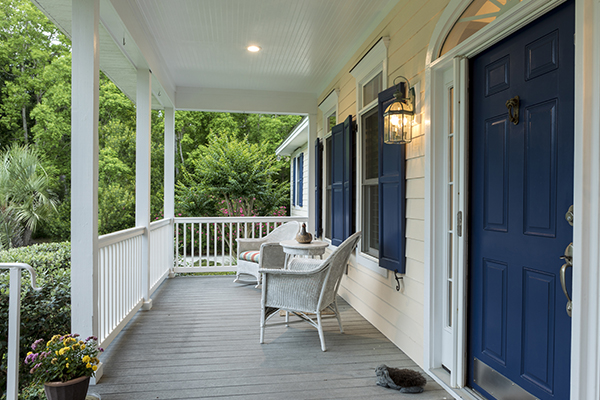California First-Time Home Buyer Programs and Grants of 2022

Key Takeaways
- Home buyer programs and grants can offer assistance with closing costs and down payments
- To qualify for most first-time home buyer programs, you’ll have to take a home buyer education course
- With most programs, there are income limits and other criteria you must meet in order to join
Homeownership is something most people in America strive for, whether it’s as an investment or a personal purchase for you and your family.
If you are considering buying your first home, you probably have tons of questions, like, “What kind of loan can I qualify for?” or maybe something more specific like, “Are there loans specifically for school district employees?” As a first-time home buyer in California, purchasing your first home can seem overwhelming, especially when it comes to the down payment.
Luckily, there are programs to assist first-time home buyers with down payment and closing costs in California.
Let’s take a look at the California Housing Finance Agency (CalHFA) and what it does to help people realize their dreams of homeownership.
What is the California Housing Finance Agency (CalHFA)?

The California Housing Finance Agency (CalHFA) is a government housing agency that helps first-time home buyers qualify for their first mortgage and purchase their first home.
To qualify for a CalFHA home buyer program or grant, the property you’re considering has to be located in California and must be the buyer’s primary residence until it’s refinanced or sold.
You’ll also be subject to the following eligibility requirements:
- Have a minimum credit score of 660
- Property size must not exceed 5 acres
- Must be a first-time home buyer and a U.S. citizen, qualified alien, or permanent resident
- Debt-to-income ratio can’t be more than 45% for automated underwriting (done by a computer) or 43% for manual underwriting (done by an underwriting agent)
- Must take an approved home buyer education course and receive a certificate of completion
- Must meet income and sales price requirements set forth by lender and mortgage insurer
- Cannot purchase leaseholds, land trusts or co-ops
Purchasing a home for the first time through the CalHFA agency might mean adhering to additional program-specific requirements.
CalHFA is different from the federal housing administration (FHA). The FHA is a federal agency that offers mortgage insurance to FHA-approved lenders and mortgages to borrowers.
MyHome Assistance Program
The MyHome Assistance program is for low-income and moderate-income first-time home buyers living in California. The funds can be used to make a down payment or cover closing costs. This type of loan is a subordinate loan, meaning it doesn’t have to be paid until the home is paid off, sold, or refinanced. The loan is limited to 3.5% of the home’s purchase price or appraised value, whichever is lower.
Eligibility Requirements:
- You must be a first-time home buyer
- Complete a home buyer education counseling program and receive a certificate of completion
- Meet CalHFA income limits
Pros:
- Down payment assistance
- Closing cost assistance
- Ability to combine this assistance with other down payment assistance or grant programs
Cons:
- Cap of $10,000
- You must occupy the property as your primary residence; non-occupant co-borrowers are not allowed
CalHFA FHA Loan Program
The CalHFA FHA Loan program is a mortgage loan program with a 30-year fixed interest rate.
Eligibility requirements:
- Must complete home buyer education course and receive a certificate of completion from an eligible home buyer counseling organization
- Must meet CalHFA income limits, which range by county (from $139,000 to $236,000)
Pros:
- You can qualify with a low credit score (580 or higher for a 3.5% down payment; 500 for a 10% down payment)
- Low down payment requirement
- Condos meet the requirements
- Manufactured homes are allowed
Cons:
- You may have to occupy the property as a primary resident; non-occupant co-borrowers are not allowed.
- 5-acre limit for property size
CalPlus FHA Loan Program

The CalPlus FHA loan program is a first mortgage loan insured by the FHA. It has a fixed interest rate (with a maximum of 30 years) and includes access to the Zero Interest Program (ZIP). The ZIP is a zero-interest loan that amounts to either 3% or 4% of the CalPLUS first mortgage loan amount. This loan can only be used in conjunction with a CalPLUS Conventional loan. Keep in mind that with conventional mortgages, you may be required to get private mortgage insurance.
Eligibility requirements: Borrowers must meet all of the above-mentioned eligibility requirements and have a minimum 640 credit score for automated underwriting approvals.
Other requirements include:
- Must meet the credit, income, and loan requirements set forth by CalHFA
- Must complete home buyer education counseling and receive a certificate of completion from an eligible home buyer counseling organization
Pros:
- Property can be a condo or Planned Unit Development (PUD)
- Non-Occupying co-signers are allowed
- Borrower does NOT have to be a first-time home buyer; can be used for a second mortgage
Cons:
- Property has to be a single-family, one-unit residence
- Income limits apply (which vary by county)
CalHFA Zero Interest Program
The CalHFA Zero Interest program is a home buying program that offers up to 3% of the total loan amount by providing a no-interest second loan (a loan for closing costs). Payments on the loan are deferred as long as you remain living in the home.
Eligibility requirements:
- Must complete home buyer education counseling and receive a certificate of completion from an eligible home buyer counseling organization
- Must meet CalHFA income limits
Pros:
- Great for those who need closing cost assistance
- One year home warranty
Cons:
- Required to pay back the loan in full if you transfer, sell, or refinance the title to someone else or default on the loan
- Owner-occupied only
- Sales price limits
- Single-family residences and HUD-approved condos only
Cal-EEM + Grant Program
The Cal-EEM + Grant Program gives first-time or repeat buyers the opportunity to combine an FHA-insured Energy Efficient Mortgage with a Cal-EEM Grant so that they can make energy-efficient home improvements.
Eligibility requirements:
- Must be a U.S. citizen or other National of the U.S. or a qualified alien
- Must meet the credit, income, and loan requirements set forth by CalHFA
Pros:
- 30-year fixed-rate interest
- You can combine the mortgage with a grant of up to 4% of the purchase price
Cons:
- Grant must be used to pay for energy-efficient improvements that don’t exceed FHA’s limits for improvement costs
- Maximum limit is either 5% of the property’s value (not more than $8,000) or $4,000, whichever is higher.
CalHFA and CalPLUS Conventional Loan Programs
The CalHFA Conventional Loan program is a first mortgage loan insured via private mortgage insurance. Getting a mortgage through this program means your loan will be fixed throughout the 30-year term.
The CalPLUS Conventional Loan program offers a somewhat higher 30-year fixed interest rate. On the plus side, you can combine it with the MyHome Assistance program for down payment assistance and the CalHFA Zero Interest Program for closing cost assistance.
Eligibility requirements:
- Must complete home buyer education counseling and receive a certificate of completion from an eligible home buyer counseling organization
- Must meet CalHFA income limits
Pros:
- The CalPLUS Conventional program doesn’t charge interest on money it lends through the program
Cons:
- If you select a higher assistance amount, you’ll receive a higher interest rate on the CalPLUS Conventional loan.
First Home Mortgage Program
The First Home Mortgage Program provides assistance up to 4% of the total first mortgage amount that can be put toward paying the down payment and closing costs. The funds don’t have to be paid back.
Eligibility requirements:
- Must meet income limits
- Must have a FICO score of 640 minimum
- Debt-to-income ratio cannot exceed 45%
- Must attend a home buyer education course and receive a certificate of completion dated 12 months prior to the closing
Pros:
- Grant program, not a loan (so funds don’t have to be paid back)
- Assistance with down payment and closing costs
- Can be used in conjunction with the CDC’s Home Ownership Program (HOP) and the Mortgage Credit Certificate (MCC) Program
Cons:
- None
Other First-Time Home Buyer Programs in California
Thanks to urban development, more and more residential areas are springing up, which means more housing and more opportunities for people to own their own homes. Additional programs include:
- School Teacher and Employee Assistance Program (for eligible employees of a school district K-12)
- CalHFA VA loan program (Department of Veterans Affairs)
- USDA Home Loan
- CalHome Program
- GSFA Platinum Program
- Brentwood Down Payment Assistance Program
- Monterey County Down Payment Assistance Program
- Santa Ana Down Payment Assistance Program
- Riverside Down Payment Assistance Program
- Emeryville First Time Home buyer Loan Program
How to Get Started
If you’re ready to start the process of buying your first home and taking advantage of one of the down payment assistance programs in your area, follow these steps:
- Learn about CalHFA’s financing options and eligibility requirements
- Consult with a CalHFA Preferred Loan Officer to get pre-qualified for a loan amount and browse mortgage lenders
- Complete a home buyer education course if you’re a first-time home buyer
- Begin searching for a home (get the home buying process underway)
Additional resources can be found at Fannie Mae, which offers homeownership education and housing counseling, and Freddie Mac, which provides information to make home buying easier for first-time buyers.
Buying a home for the first time can seem overwhelming. But the resources and information available for buyers in California can assist you in your search and help guide you through the process. The above home buyer assistance programs can help you get into the California home of your dreams.






